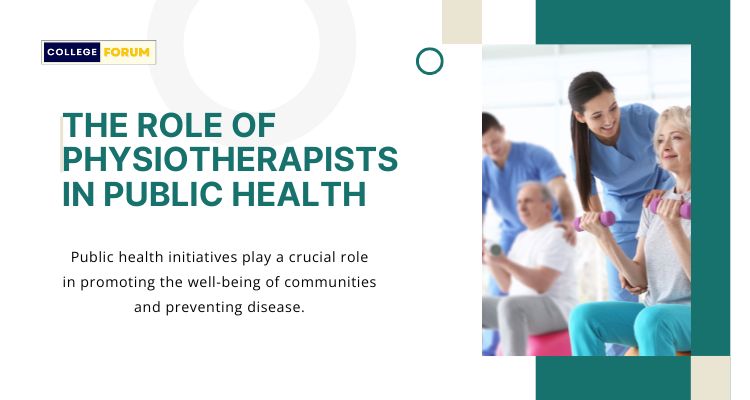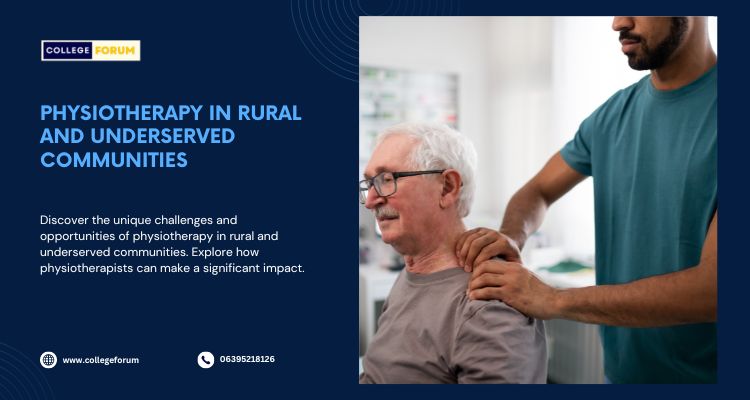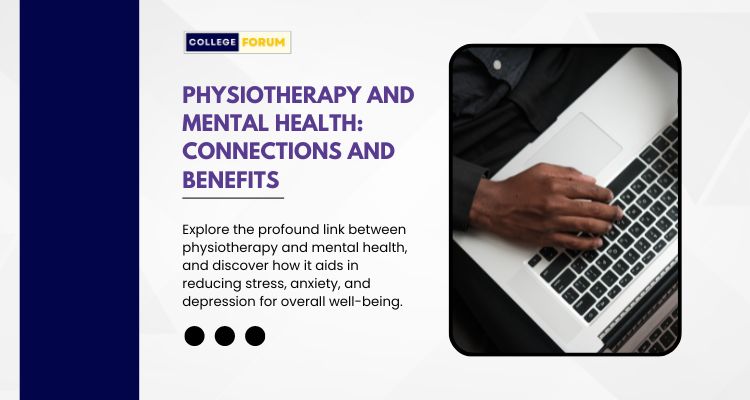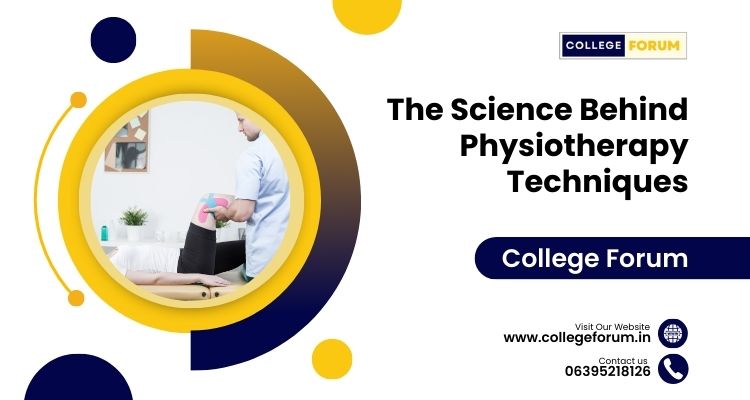How Physiotherapists Contribute to Public Health Initiatives
Public health initiatives play a crucial role in promoting the well-being of communities and preventing disease. Among the various healthcare professionals involved in these initiatives, physiotherapists stand out for their unique contributions. This blog will explore how physiotherapists contribute to public health, particularly in public health campaigns, health promotion, and community wellness programs. The Role of Physiotherapists in Public Health Physiotherapists are trained to assess, diagnose, and treat a wide range of physical health issues. While their primary focus has traditionally been on rehabilitation, their role in public health is increasingly recognized. Physiotherapists bring a preventative approach to healthcare, helping individuals and communities maintain optimal physical function and quality of life. Public Health Campaigns One of the significant ways physiotherapists contribute to public health is through active participation in public health campaigns. These campaigns aim to educate the public about various health issues, encourage healthy behaviors, and reduce the incidence of disease. Physical Activity Promotion A major public health concern worldwide is the increasing prevalence of sedentary lifestyles, leading to various chronic conditions such as obesity, cardiovascular disease, and diabetes. Physiotherapists play a vital role in promoting physical activity, which is essential for preventing these conditions. Physiotherapists contribute to public health by designing and implementing physical activity programs tailored to different populations, from children to the elderly. They also participate in national and local campaigns to raise awareness about the importance of regular physical activity. Through workshops, community events, and social media, physiotherapists educate the public on how to integrate physical activity into their daily lives. Injury Prevention Programs Injury prevention is another critical area where physiotherapists contribute to public health. Whether it’s preventing workplace injuries, sports-related injuries, or falls among the elderly, physiotherapists are at the forefront of developing and implementing prevention strategies. For example, in workplaces with a high risk of musculoskeletal injuries, physiotherapists conduct ergonomic assessments and provide training on proper body mechanics. In schools and sports clubs, they offer guidance on safe exercise practices to prevent injuries. By reducing the incidence of injuries, physiotherapists help lessen the burden on healthcare systems and improve the quality of life for individuals. Chronic Disease Management Chronic diseases such as heart disease, arthritis, and respiratory conditions significantly impact public health. Physiotherapists contribute to public health by providing management strategies for these conditions, helping patients maintain mobility and independence. Physiotherapists work with individuals diagnosed with chronic diseases to develop exercise programs that improve cardiovascular health, enhance joint mobility, and strengthen muscles. They also educate patients on how to manage their conditions effectively, reducing the risk of complications and hospitalizations. Health Promotion Health promotion involves activities that enhance the overall health and well-being of individuals and communities. Physiotherapists are key players in health promotion initiatives, offering expertise in areas such as exercise, posture, and injury prevention. Community Education Physiotherapists contribute to public health by educating communities about the importance of maintaining a healthy lifestyle. This education often takes place in community centers, schools, and workplaces, where physiotherapists provide workshops and seminars on topics such as posture correction, stress management, and the benefits of regular exercise. For example, physiotherapists might lead a community workshop on the importance of good posture in preventing back pain. They might also organize exercise classes for different age groups, focusing on improving strength, flexibility, and balance. By educating the public, physiotherapists empower individuals to take control of their health and prevent common physical ailments. Collaborative Health Programs Physiotherapists often collaborate with other healthcare professionals, such as doctors, nurses, and dietitians, to deliver comprehensive health promotion programs. These programs address various aspects of health, from nutrition and exercise to mental well-being. For instance, a physiotherapist might work with a dietitian to develop a weight management program for a community. While the dietitian focuses on nutrition, the physiotherapist designs exercise routines that are safe and effective for individuals with different fitness levels. By working together, healthcare professionals can provide a holistic approach to health promotion, addressing multiple factors that contribute to overall well-being. Support for Special Populations Certain populations, such as the elderly, people with disabilities, and those with chronic health conditions, require specialized support to maintain their health. Physiotherapists contribute to public health by offering tailored programs for these groups, focusing on improving mobility, preventing falls, and enhancing the quality of life. For example, physiotherapists might run fall prevention programs for the elderly, teaching exercises that strengthen the lower body and improve balance. They might also work with people with disabilities to develop exercise routines that enhance their physical capabilities and reduce the risk of secondary health issues. By addressing the unique needs of these populations, physiotherapists help to reduce health disparities and promote equity in healthcare. Community Wellness Programs Community wellness programs are another avenue through which physiotherapists contribute to public health. These programs are designed to promote health and well-being at the community level, often involving multiple stakeholders, including healthcare providers, local governments, and community organizations. Fitness and Wellness Initiatives Physiotherapists contribute to public health by leading fitness and wellness initiatives that encourage regular physical activity and healthy living. These initiatives can take many forms, from community exercise classes to wellness challenges that motivate individuals to adopt healthier habits. For example, a physiotherapist might organize a community walking group, encouraging residents to engage in regular physical activity. They might also run fitness assessments to help individuals understand their current fitness levels and set realistic goals for improvement. By making physical activity accessible and enjoyable, physiotherapists help to foster a culture of health within communities. Rehabilitation and Recovery Programs In addition to promoting general wellness, physiotherapists contribute to public health by providing rehabilitation and recovery programs for individuals recovering from illness or injury. These programs are essential for helping people regain their physical function and return to their daily activities. Physiotherapists work with individuals recovering from conditions such as stroke, surgery, or chronic pain, designing personalized rehabilitation programs that address their specific needs. They also provide support and education to caregivers, ensuring that patients receive the care
How Physiotherapists Contribute to Public Health Initiatives Read More »








